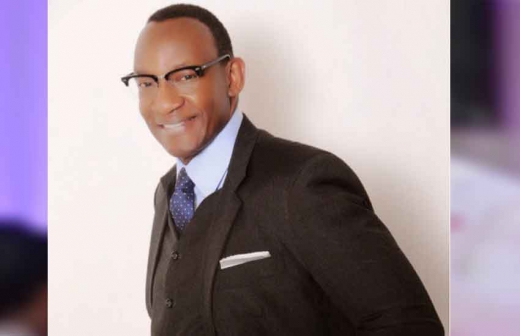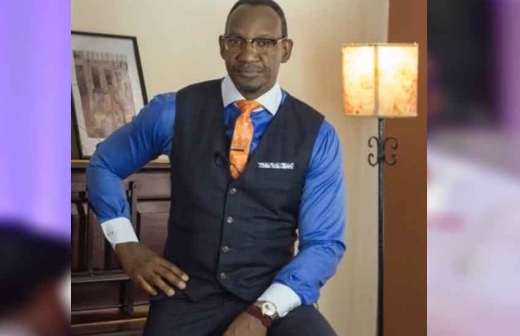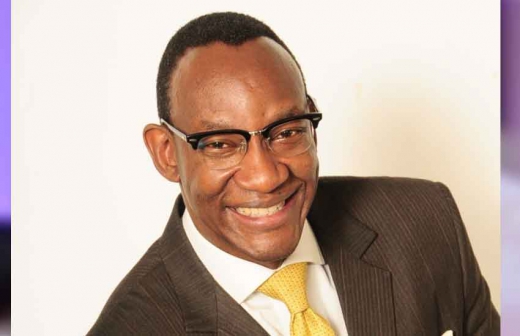
Derek Bbanga and I speak on an unforgiving, chilly, Saturday morning. His voice is a bit groggy, we laugh at this. He tells me it has been a long week of long trainings. His body is suffering.
For this feature, we, at his suggestion, plan to meet at the Le Grenier à Pain on Riverside Drive. It is “an exquisite French bakery,” Derek tells me.
Three days later, we actually meet at The Royal Tulip Hotel on Tigoni Road, Kilimani. Plans changed.
Although quite careful with information, Derek slowly opens up to me as he takes his coffee, black, no sugar.
We start with his background, growing up in Kenya, schooling in the US, dealing with 9/11, moving to Finland, living in France, moving to the UK, and finally finding his way back home, to practise what has now made him a highly sought after expert in his field and a dashing celebrity.

Later, when the interview is done and we walk down the stairs from the first floor, Derek intrigues me with humorous stories, we exchange more banter and even more laughter, sharing business and branding ideas, before he asks me why I didn’t ask to do this interview in his home. I’m taken aback.
I ask him if, had I asked to actually do the interview in his house, he would have allowed it. He responds with an instant yes.
My mind immediately races with regret. I should have been daring enough. I should have taken the chance. I should have asked.
You can tell so much about people based on their homes, and artefacts, and photos and microwaves and floor rags and flavours of incense, if they burn any. I’m tempted to ask for a part 3 of the interview, (since we did part 1), but I figure my opportunity is lost. And I might just never have it again.

Nonetheless, I remember to be grateful that Derek was such a sport, saying yes, showing up, patiently answering my questions, and calmly sharing with me things I would have never quite guessed he went through, like depression.
Here’s the rest of Derek Bbanga’s story:
What’s your background Derek?
I’m half Ugandan, half Kenyan. My mother is from the Coast, my father is Ugandan.
Right, hence your surname…
Yes. Bbanga, with double B, double consonants from the Baganda people. Like Ssemwanga, Ssemogere, just a few examples.
Got it. Did you grow up in Uganda?
No, I grew up in Kenya. I was born and bred here. I went to school here, until my first year of university.

Where was that?
At the University of Nairobi. And then I travelled to the US thereafter.
What did you study?
I studied Political Science when I was here, but in the US it’s called a Pre-Law Degree, which was fine, because I wanted to go to law school. But I obviously didn’t become a lawyer.
How come?
In the States, how it works, is you have to take an entrance exam before you join law school. But I’d moved to New York, started working, making money, and I kept deferring taking the exam, and eventually, I never did.
I was working in finance at the time, so those dreams sort of died because I was working in another career, essentially.
Did you like working in finance?
Yeah, it was interesting. I was working for Bloomberg and my boss was Michael Bloomberg. Well, of course not directly, but it was great working there.
How long were you in New York?
About three years. My leaving was a culmination of things, a key one being 9/11. It found me there, I happened to lose a number of colleagues, and it was in its entirety just very traumatic.
What did you do afterwards?
I had an epiphany. I was living in Brooklyn at the time, across the Brooklyn Bridge, which is not too far from the twin towers that had collapsed, and I remember coming home and seeing the ashes, debris from the towers and people who perished, on my window seal.
I said to myself, at that moment, I have to do something different with my life. Other than working in the financial sector and being paid for it, there had to be more to life. So that was the beginning of the process of thinking of something else.
Where did you move to next?
Eventually, about a year later, I ended up moving to Finland.
Why Finland, of all the countries you could have chosen?
That was because of, (pauses) let’s just call it a romantic entanglement.
Alright.
Yeah, I know (laughs). But while there I enrolled at the Helsinki School of Economics for their MBA program.
Do you speak Finnish now?
No. Finnish is not an easy language to grasp.
What other languages do you speak apart from English?
I speak very poor French; I took four years of Japanese in college which I was really good at, but now not so much; Swahili and a bit of my mother tongues.
How did you get into Personal Branding?
After Finland I moved to France, lived there for a bit and then moved to the UK working for a strategic communications company.
They were opening up a branch in Africa, I was in talks with some of the people running it, and that’s how I started working and coaching people on Personal Branding, Image and Etiquette.
What messages, does a firm handshake give?
A handshake is a character indicator, so a firm handshake tends to indicate that someone has got resolve in their character, completes their tasks on time and is competent.
Do you believe women who wear make-up get ahead in their careers faster than those who don’t?
That’s a fact.
Is it?
Yes. Research has shown, that women who wear make-up in a professional setting, have an advantage.

One advantage, for instance, is when you’re speaking, people are lip reading to a great extent.
Part of them interpreting what you’re saying, is watching your mouth move, and when you have some lipstick, some colour, it enhances your lips, improving your communication and making you more easily understood than when without make-up.
Okay.
Other than that there’s also something called make-up bias, which is, women who wear make up are around the world, generally perceived as more attractive, confident and more competent than those who don’t. So in the business world, it’s certainly a plus.
What’s your advice to young people getting into the corporate world?
Enhance your public speaking skills. I strongly believe that public speaking and rhetoric should be taught in high school and university. The art of public speaking enhances your communication skills exponentially.
They say that a man who is past 30 years old and hasn’t “made it” has failed, do you subscribe to that belief?
What is “made it?”
I was about to ask you that same question.
I don’t believe that at all. Society imposes all these pressures on humanity and it is completely unnecessary.
Every day is a new day, to learn a new skill, discover something, do better. Money also, shouldn’t particularly be a yardstick for success.
Even I don’t think I’ve made it. Making it is a life-long pursuit.
I think everybody should stay in their own lane and run their individual race without comparing themselves to their peers.
Do you think you are bourgeoisie?
(Smiles) I don’t know…what does that mean?
Perhaps in your sense of style, dressing and the way you conduct yourself?
Well, I like speaking English in full sentences, I like putting together proper outfits and I also like pulling out chairs for ladies.
If these things mean I’m bourgeoisie, then, guilty as charged. (Laughs)
As a celebrity, do you get stalkers?
Yes.
Do you like it?
No. (Laughs)
How do they stalk you?
In Kenya? It’s usually through social media. WhatsApp. Texts. Some are quite forthcoming with what they want, they ask for trainings at a particular place, or simply request to meet up.
However, it’s part of the job, it comes with being on TV. And I also don’t particularly hide my contact details.
Are you dating?
(Smiles in long silence) No, I’m more than dating, I’m engaged.
Congratulations!
Thank you so much. (Smiles)
Tell me a little about your fiancé?
She’s American.
Okay.
But she has some Kenyan roots! (Laughs)
I didn’t say much Derek, I just said, “Okay.”
(Laughs again) Yeah, the engagement happened earlier this year. She’s wonderful. She’s great.
She’s very different from who I am and we complement each other. She understands me and she doesn’t judge me. It’s incredible.
Will you relocate to the US?
You can’t ask me that.
Why not?
Because I don’t know. I don’t have an answer. We’ll see what happens. We’ll see how it goes.
What are some of your biggest regrets in life so far?
Oh, that would be not immersing myself fully in the French culture when I lived there.
I was always surrounded by Brits who were living like they were in the UK even though they were in a different country. I should have soaked up the French culture a bit more. I think about that a lot.
Do you have any another regret?
(Long pause) I would say not developing more relationships with people outside of work. I’m not too good at it, and it is something I wish I was better at.
Some of the people I meet, I wish I created more rapport and kept in touch with them. Perhaps certain aspects of my personal life would have been more fulfilled, because I don’t know what those friendships would have done.
What has your lowest moment in life been so far?
(Smiles then pauses) Yvonne, do your other guests actually answer that question?
They surprise me too.
Well, a low experience would have been when I struggled with depression quite a while back, that was tough.
Such things stay with you, so you just learn how to cope, techniques of how to deal with it. It wasn’t too severe, but it was enough to be a challenge.
What do you think caused it?
I think it’s largely a chemical imbalance. Life issues can exacerbate it, but I think it’s a chemical imbalance.
How did the depression manifest for you?
Oh, it was feeling low, unworthy, not knowing who to turn to and wanting to be alone all the time.
How did you survive it?
I, for the most part, used to talk to myself. I used to literally say, “No, not today.” You see that black door coming and you fight it.
You get up, you go to the gym, you go to work, you hang out with people, you just do something, one step at a time.
African men, in general, find seeing a mental health professional to be almost taboo; how would you encourage them to see one and let them know it’s okay?
That’s ego. Get the ego out of the way and deal with it. You can’t do this on your own. I would say just see a professional if you can.
Also, talk. Talk to someone: a family member, a friend, a church member. Just find someone to talk to. That’s another factor that got me through the depression, I talked to my church vicar, he was also my therapist.
Is there anything you wish you did differently in your youth?
Of course. I was young. Everyone always wishes they did something differently in their youth.
But generally, and this is now becoming more of a bucket-list than a regret, I wish I wrote more. I want to write more. I fantasise a lot about writing a novel.
Will you?
Yes. (Laughs) One day.
What would you write about?
(Thinks) The experiences of African soldiers in the First World War.
Wow. I hope you do it.
I hope I do it too.
If there’s one thing you could ask God for today, what would it be?
(Thinks) I would ask him for a number of things, but because you said one, I’d ask him for a successful marriage. I really want it to work out. I hope to have a happy, fulfilling marriage with my wife-to-be.
Any last words?
Learn to promote yourself. Get over thinking that it is arrogant. You have to learn how to promote yourself.
If you are, for example, the best accountant in the world but you don’t tell us about it, how will we seek your services? Believe in yourself and get your message out. It’s a requirement if you want to be successful.
Yvonne Aoll is a writer who is keen on telling people's stories. You can read more of her work at http://www.yvnaoll.com/
 The Standard Group Plc is a multi-media organization with investments in media
platforms spanning newspaper print
operations, television, radio broadcasting, digital and online services. The
Standard Group is recognized as a
leading multi-media house in Kenya with a key influence in matters of national and
international interest.
The Standard Group Plc is a multi-media organization with investments in media
platforms spanning newspaper print
operations, television, radio broadcasting, digital and online services. The
Standard Group is recognized as a
leading multi-media house in Kenya with a key influence in matters of national and
international interest.
